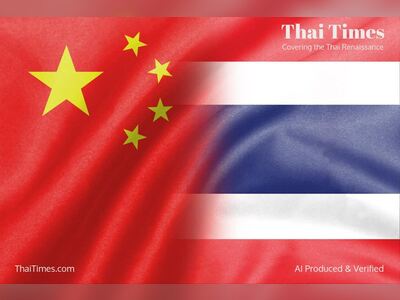Bank of Thailand Prepared to Address Baht Volatility
Central bank official states readiness to manage excessive fluctuations in the baht amid calls from industry for intervention.
Thailand's central bank, the Bank of Thailand (BoT), has signaled its readiness to intervene in currency markets to manage excessive volatility of the baht.
Deputy Governor Piti Disyatat emphasized the importance of maintaining stability in the currency, highlighting concern over movements deemed 'unhinged' from economic fundamentals.
This statement comes as the baht has appreciated approximately 5% against the dollar this year, leading to increased calls from local businesses and governmental officials for the bank to take measures to weaken the currency in support of exports and tourism, which are vital components of the country's economy.
As per Mr. Piti, the bank is vigilant in monitoring the baht's performance and is cautious about excessive volatility.
"We do look at the baht closely and try not to let it be too volatile," he remarked in an interview.
He clarified that the bank does not target a specific level or direction for the baht and noted that the currency's appreciation aligns with broader regional trends.
On the foreign exchange front, the baht declined by 0.3% to 32.57 per dollar on Friday, underperforming compared to some Asian currencies.
Mr. Piti pointed out that fluctuations driven by non-fundamental factors, such as market sentiment or speculative trading, could prompt intervention from the central bank to stabilize the currency.
Notably, as the Thai government engages in trade discussions with the United States regarding a potential reduction of the 36% tariff on its goods, concerns about competitive exchange rates have been raised.
The BoT's policy is reported to comply with the International Monetary Fund (IMF) guidelines on managing exchange rate volatility.
Piti stated that discussions on tariffs had not specifically included the exchange rate management angle.
The BoT employs a flexible exchange rate framework, typically allowing the market to absorb shocks while intervening only when necessary.
Mr. Piti additionally addressed the correlation between the baht's movements and gold prices, asserting that while gold price fluctuations may amplify currency movements, they do not constitute a fundamental driver of exchange rate changes.
Thailand's foreign reserves have reached a record high of $259.9 billion this month, a figure attributed to valuation changes rather than an increase in dollar acquisitions by the central bank.
This data reflects the ongoing adjustments in asset valuations rather than significant foreign exchange interventions.
Deputy Governor Piti Disyatat emphasized the importance of maintaining stability in the currency, highlighting concern over movements deemed 'unhinged' from economic fundamentals.
This statement comes as the baht has appreciated approximately 5% against the dollar this year, leading to increased calls from local businesses and governmental officials for the bank to take measures to weaken the currency in support of exports and tourism, which are vital components of the country's economy.
As per Mr. Piti, the bank is vigilant in monitoring the baht's performance and is cautious about excessive volatility.
"We do look at the baht closely and try not to let it be too volatile," he remarked in an interview.
He clarified that the bank does not target a specific level or direction for the baht and noted that the currency's appreciation aligns with broader regional trends.
On the foreign exchange front, the baht declined by 0.3% to 32.57 per dollar on Friday, underperforming compared to some Asian currencies.
Mr. Piti pointed out that fluctuations driven by non-fundamental factors, such as market sentiment or speculative trading, could prompt intervention from the central bank to stabilize the currency.
Notably, as the Thai government engages in trade discussions with the United States regarding a potential reduction of the 36% tariff on its goods, concerns about competitive exchange rates have been raised.
The BoT's policy is reported to comply with the International Monetary Fund (IMF) guidelines on managing exchange rate volatility.
Piti stated that discussions on tariffs had not specifically included the exchange rate management angle.
The BoT employs a flexible exchange rate framework, typically allowing the market to absorb shocks while intervening only when necessary.
Mr. Piti additionally addressed the correlation between the baht's movements and gold prices, asserting that while gold price fluctuations may amplify currency movements, they do not constitute a fundamental driver of exchange rate changes.
Thailand's foreign reserves have reached a record high of $259.9 billion this month, a figure attributed to valuation changes rather than an increase in dollar acquisitions by the central bank.
This data reflects the ongoing adjustments in asset valuations rather than significant foreign exchange interventions.











